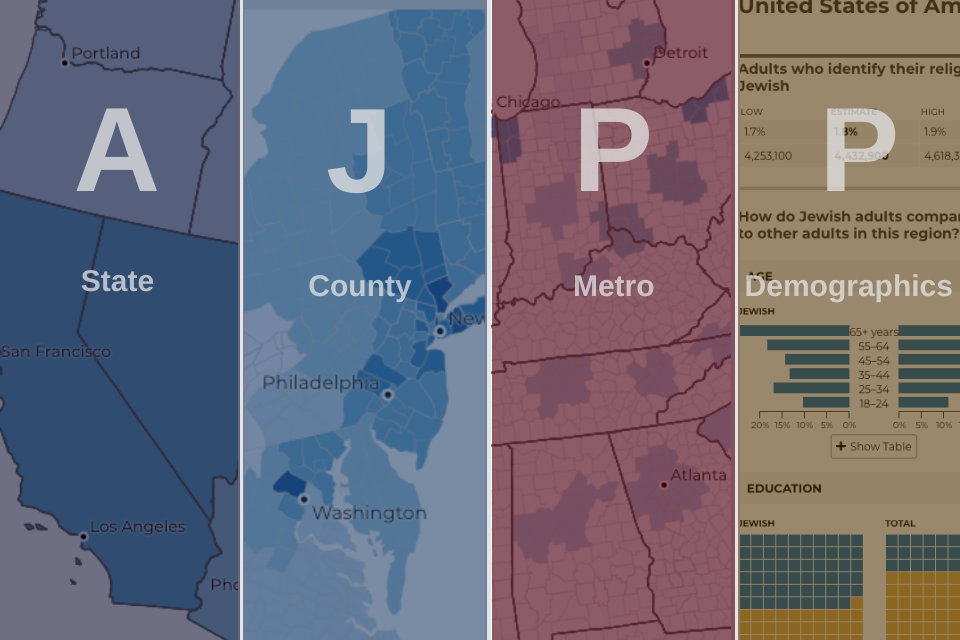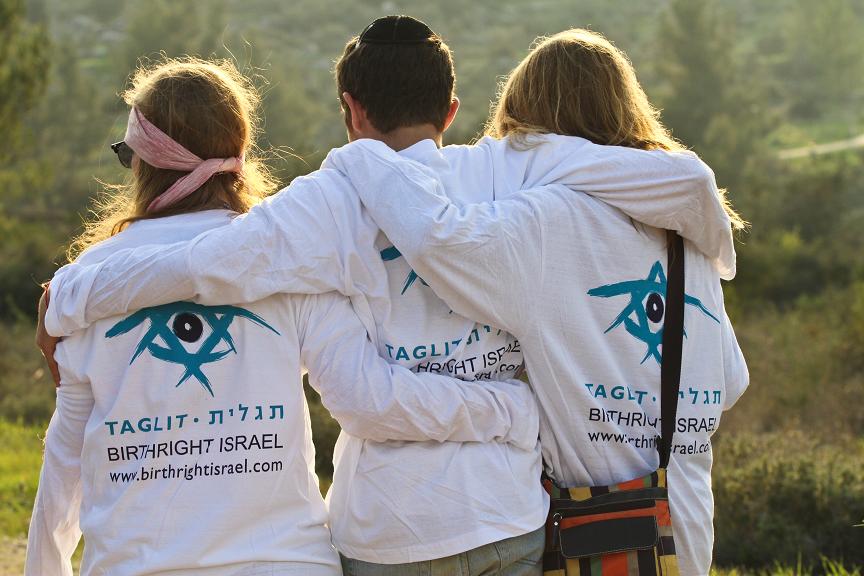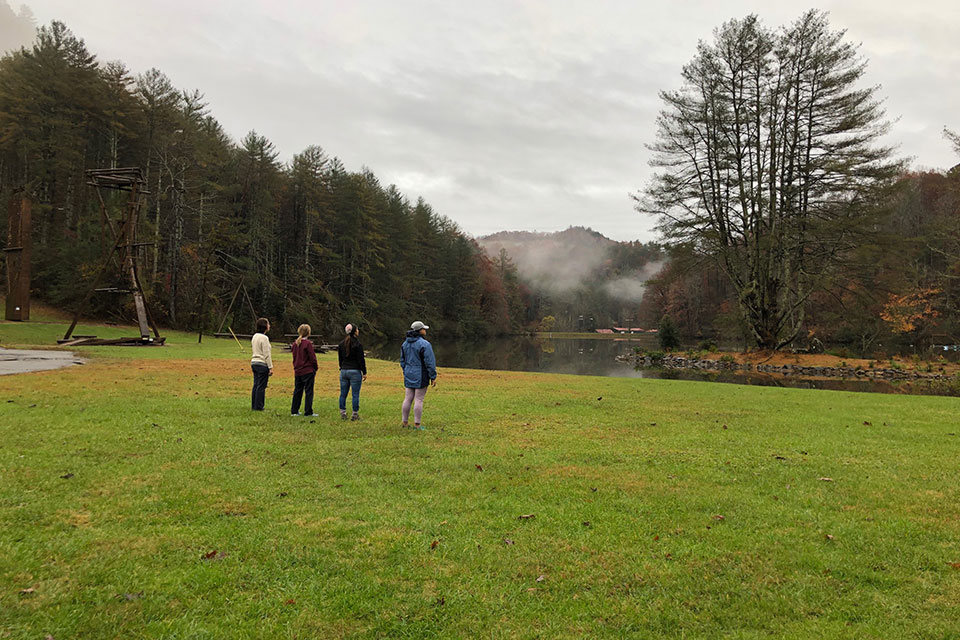October 31, 2023. The Cohen Center for Modern Jewish Studies is conducting a series of studies to understand how American Jews are reacting to the Israel-Hamas war. This study is lead by Prof. Leonard Saxe, the Director of the Cohen Center for Modern Jewish Studies at Brandeis University. We have been contacting individuals by text message and by email. Invitations were sent to individuals who applied or went on Birthright. If you have any questions about this study please call 781-736-3821 or email isrlstudy@brandeis.edu.
Recent Research Publications

June 2025
Jewish Maine: The 2024 Community Study is the first ever in-depth assessment of the size and characteristics of the Jewish community throughout Maine, and the first study to cover Southern Maine since 2007. The study provides a comprehensive portrait of the state's 19,000 Jews; their families; their Jewish attitudes, affiliations, and behaviors; their health and financial well-being; and other measures of their engagement in Jewish life.
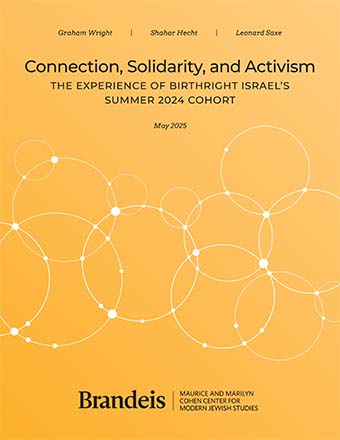
May 2025
In summer 2024, Birthright sent over 4,500 young American Jews to Israel on 10-day, peer-educational trips, just as it had been doing since 2000. Unlike at any other period, these young Jews chose to go to Israel while multiple military conflicts were ongoing, and when a spike in antisemitic hostility related to criticism of Israel was occurring at many of the college campuses they attended. The unprecedented context of summer 2024 trips raises important new questions about the Birthright program and US Jewish young adults in general. This report explores the kinds of young Jews who chose to apply to Birthright during this challenging summer and participants' beliefs when they arrived in Israel. The report also examines whether the quality of the experience was disrupted by the war, the extent to which the Birthright trip influenced participants' relationship to Israel, and the trip's effect on their responses to hostile discourse surrounding Israel after returning to the United States.
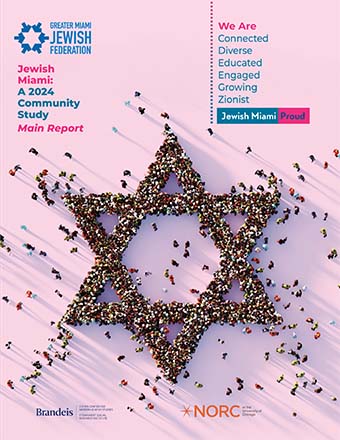
April 2025
Jewish Miami: A 2024 Community Study provides a snapshot of today’s Jewish population in Miami and considers trends and developments in Jewish life and engagement. This study is based on an analysis of data collected from 2,686 eligible households between February 5 and June 14, 2024. The study found that there are 69,700 Jewish households in the Miami Jewish community. These households include 170,300 individuals, of whom 130,100 are Jewish. The Jewish population comprises 5% of the total Miami-Dade population, and Jewish households make up 8% of all households in Miami-Dade County. Nearly one quarter of Miami Jewish adults have moved to the area in the past decade, and one third of Jewish adults were born outside of the United States. The share of Miami Jews who are Orthodox is 13%, and nearly half of Miami Jewish children (46%) reside in Orthodox households.
Highlights


